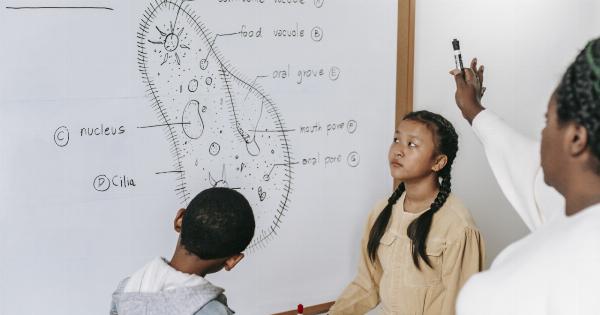The Revayon is a term that was coined by a group of futurists, scientists, and entrepreneurs to describe a hypothetical event in the future where technological advancements and societal changes lead to a major shift in how we live and work.
The term is derived from the words “revolution” and “renaissance,” and it represents a transformational period where everything we know and understand about the world will undergo significant changes.
What are the Expectations after the Revayon?
While we cannot predict the exact outcomes or implications of the Revayon with certainty, we can make some informed predictions based on current trends and research. Here are some things you can expect after the Revayon:.
New Communication Technology
With the widespread adoption of AI, blockchain, the Internet of Things (IoT), and other emerging technologies, there will be many new ways to communicate and exchange information.
This will lead to greater efficiency, accuracy, and transparency in various industries and organizations.
A New Era of Healthcare
Technological advancements will revolutionize the healthcare system. People will have access to personalized treatments, medical robots, and wearable health monitoring devices that can monitor and optimize their health in real-time.
Telemedicine and virtual consultations will become increasingly common.
New Energy Sources
The use of sustainable energy sources such as solar, wind, and geothermal will become more prevalent. These clean energy solutions will help reduce carbon emissions and provide a reliable, affordable alternative to fossil fuels.
New Ways of Learning and Working
The traditional education and work systems will evolve as automation and AI become increasingly popular. People will need to continuously learn and adapt to new technologies and work in a more collaborative and remote environment.
Education will become more personalized and dynamic, with online courses and interactive learning tools.
A Shift in Social Norms and Values
The Revayon will challenge our current social norms and values, leading to new forms of identity, relationships, and communities.
There will be a greater emphasis on empathy, diversity, and inclusivity, and people will value their personal data and privacy more than ever before. People will prioritize sustainability and ethical practices, and organizations that fail to meet these standards may face backlash.
Globalization and Interconnectivity
The Revayon will lead to an increased global interconnectedness, with more businesses collaborating across borders and individuals having access to support and resources from all around the world.
There will be a greater focus on cooperation, collaboration, and mutual benefit, as opposed to competition and individualism.
The Role of Government and Regulation
The Revayon will create new challenges for governments and regulatory bodies. They will need to adapt their policies and institutions to ensure that they keep up with the rapid pace of technological change.
There will be debates around the role of government in regulating AI and other emerging technologies, and how to balance innovation with accountability and safety.
New Security Risks
As technology advances, there will be new security risks and vulnerabilities that emerge. Cybersecurity will become increasingly important, and people will need to take more proactive steps to protect their data and privacy.
New Forms of Art and Entertainment
The Revayon will create new opportunities for artists, musicians, and other creatives to explore and experiment with new forms of expression.
Virtual reality and augmented reality will become more prevalent in entertainment, and people will have access to immersive experiences that were previously unimaginable.
The Future of Humanity
Ultimately, the Revayon will transform our understanding of what it means to be human. We will need to rethink our relationship with technology and how it impacts our daily lives, relationships, and societies.
The future is uncertain, but one thing is clear: the Revayon represents a major turning point in human history, and we must embrace the changes that come with it.































